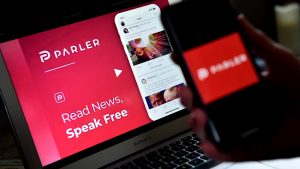By Harold Hutchison
This is the 4th installment of an ongoing series.
No matter how the litigation over Wisconsin, Michigan, Nevada, Georgia, Arizona, and Pennsylvania turns out, there are still many lessons we can learn from the 2020 election. The fact of the matter is that bad personnel decisions and a failure to plan ended up giving the Left an edge in preparing the electoral battlefield. Team Trump’s failure to anticipate some of the attacks the Left would use was also a huge blunder.
Some of these attacks were not only foreseeable, but almost absurdly easy to counter. The failure to properly anticipate and counter attacks made both fraud and the failure to follow election law more prominent factors than they otherwise would have been.
For example, the phony claim that Trump supports white supremacy—it was coming long before the media claimed he called white supremacists “very fine people” in the wake of Charlottesville. The many variations of that lie or similar racism claims, often spewed by Joe Biden and Kamala Harris, did a lot of damage. Why didn’t Trump’s team or, more important, Trump himself, have a better response ready?
He had several very solid ways to make those who call him a white supremacist look completely foolish. His daughter Ivanka, his son-in-law Jared Kushner, and their three children are the clearest refutations of the notion he backs white supremacy, and they were his best weapon to use against those lies.
If he would use his love for his family to challenge claims of white supremacy, he would connect, not as President, but as a father and grandfather. This of course would serve as a huge counter to one of the usual attacks we often see directed at conservatives/Republicans: that they lack compassion, don’t care about people, etc. Whether it was welfare reform in 1995, fighting to repeal Obamacare or opposing a government takeover of health care via Medicare for All in 2021, the “no compassion” attack is frequent and comes in various forms, including comparisons to Nazis.
Now, we know these attacks are coming, but failing to counter them has big consequences. One of them is this: With all the rhetoric about Republicans in general and Trump supporters in particular, being Nazis/white supremacists/mass murderers, (over health care), domestic terrorists (for defending the Second Amendment), it may have allowed some people to decide it was OK to break the rules to stop a President they falsely believed had such unseemly ties.
This is something that should also apply to other areas besides political campaigns or efforts to pass legislation. New media outlets will also need to anticipate attacks. What sort of attacks could they face?
 One likely attack would come from the tag-team of Big Tech and the mainstream media (really the DNC’s steno pool.) Here’s how it will work: The mainstream media will want to make sure it can squash or neutralize competitors—and to do so, it will paint outlets like UncoverDC as unreliable and push for bans. For one example, see the Daily Wire’s coverage of CNN reporter Oliver Darcy’s successful campaign to get Infowars banned from Twitter and Facebook.
One likely attack would come from the tag-team of Big Tech and the mainstream media (really the DNC’s steno pool.) Here’s how it will work: The mainstream media will want to make sure it can squash or neutralize competitors—and to do so, it will paint outlets like UncoverDC as unreliable and push for bans. For one example, see the Daily Wire’s coverage of CNN reporter Oliver Darcy’s successful campaign to get Infowars banned from Twitter and Facebook.
You may not care for some of the stuff Alex Jones has done, you may even find him quite repulsive, but the playbook that was used on him will be repeated against other targets by CNN and other mainstream outlets, targeting not just journalism outlets that challenge the mainstream media’s narrative, but the upstart social media sites seeking to compete with Twitter and Facebook as well. The way the upstart social media sites will be targeted will likely be over “fact-checking” by approved outlets.
 How might that work? Assume, at some point next year, after a campaign from CNN figures like Brian Stelter and Darcy, among others (with cover provided by Bulwark/Dispatch “conservatives” like Amanda Carpenter and David French) that Apple and Google give Parler an ultimatum to create policies that address misinformation, similar to those currently being implemented by Facebook and Twitter, or be banned from their app stores.
How might that work? Assume, at some point next year, after a campaign from CNN figures like Brian Stelter and Darcy, among others (with cover provided by Bulwark/Dispatch “conservatives” like Amanda Carpenter and David French) that Apple and Google give Parler an ultimatum to create policies that address misinformation, similar to those currently being implemented by Facebook and Twitter, or be banned from their app stores.
Given that Apple and Google have a near duopoly on smartphone operating systems, Parler would be in a world of hurt if it were banned from app stores. They could work around it by having a good mobile site that can be accessed through a browser, but that isn’t quite the same, and would be inconvenient for users. Plus, Google dominates both the web and mobile browser markets, anyway.
Again, Parler needs to be able to counter that attack. Part of it could be preparing for legal action—Big Tech has multiple vulnerabilities, even without Section 230 reform or repeal. Torturous interference, which nolo.com defines as occurring when “someone unfairly disrupts one of your business relationships,” is not off the table. With one other move, Parler could prepare the battlefield on the legal front. By charging a nominal monthly fee for access to its services (say, $1), Parler—and its subscribers—would gain additional ground in addition to those covered earlier on this site.
Bottom line: Anticipating an attack and being ready to counter it are important parts of any successful campaign. Team Trump’s failure to do so helped put us in a desperate fight for the future of this country.
Harold Hutchison has nearly two decades of experience covering a variety of topics, including politics, national security affairs, foreign policy, Second Amendment issues, and sports. He has been published in numerous media outlets, including National Review, the Daily Caller, the Patriot Post, Ammoland.com, and the Washington Examiner.



